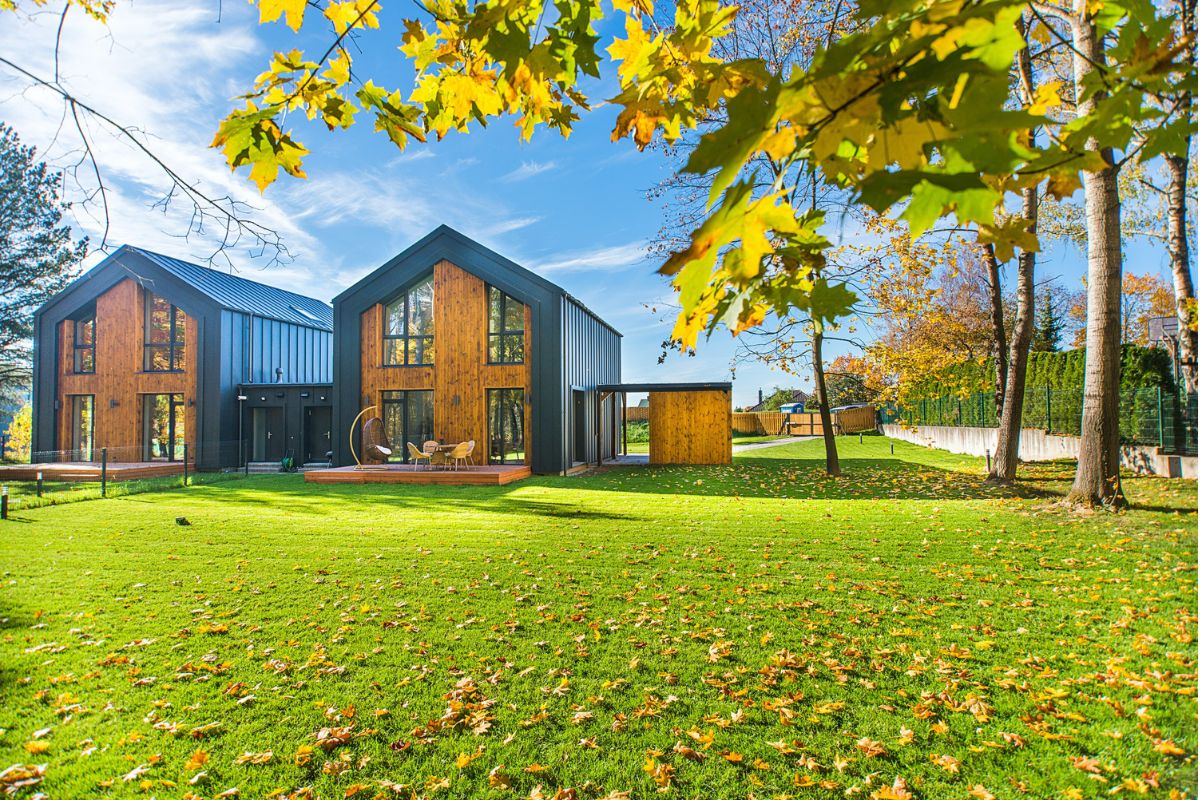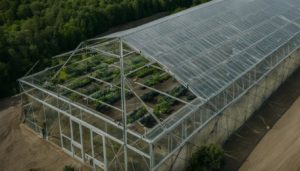When it comes to lawn care, mulching is an often overlooked practice. It’s no wonder many people often ask, “Should you mulch your lawn?”
Well, if you want your lawn to thrive and look its best, mulching should be a part of your regular routine!
In this article, I’ll explain why mulching is so important for keeping your yard looking great all year round. I’ll give you a lowdown on getting your green space into tip-top shape with the power of mulch.
Let’s get started!
Benefits Of Mulching
Mulching your lawn offers a plethora of benefits. Did you know that mulch can help retain soil nutrients? This helps keep the grass healthy and lush.
Organic mulches are great choices for controlling weeds without introducing potentially harmful chemicals into the environment. They also help retain moisture so you don’t have to water as often, meaning less work for you!
Organic varieties are also beneficial to soil health because they add valuable nutrients back while preventing erosion and improving drainage.
Finally, applying mulch around plants can reduce insect infestations since it creates a barrier between pests and their food source.
These benefits all add up to improved plant health and vigor – which means lush green grass and plenty of blooms come springtime!
With the right mulch selection, appropriate tools and proper mowing habits, you can get even more out of this gardening technique.
Moving on, there are several types of mulch to choose from in order to meet various needs. Let’s talk about them.
Types
Mulching helps with erosion control, moisture retention and weed prevention, so selecting the right type of mulch is key.
You have several options, the popular choices being:
- Wood chips
- Pine straw
- Grass clippings
- Bark nuggets
- Shredded leaves
Depending on where you live, certain types may be more readily available than others, so do some research beforehand.
If weeds have already taken over your lawn, use an organic material like wood chips or bark that will block light from reaching them.
The thickness of the mulch layer is also important for longevity.
Generally, 2-4 inches is a good starting point – but if you want something really long-lasting then go all out with 4-6 inches!But make sure the top layer isn’t too thick because this can lead to composting issues. It’s also an invite for rodents or other critters looking for food or shelter.
TIP: If weeds have already taken over your lawn, use an organic material like wood chips or bark that will block light from reaching them.
With the right kind and amount of mulch in place, your yard will soon reap its rewards! Onward to preparing the lawn for mulching…
Preparing The Lawn
Before applying mulch to a lawn, it’s important to prepare the soil.
Preparing your soil means tilling it at least 6 inches deep. This allows for better water penetration and easier nutrient absorption by grass roots.
Additionally, adding compost can help build up nutrients in the soil before you apply any mulch.
With these steps completed, your lawn is ready for its new layer of protection!
Application Techniques
Mulching your lawn is one of the most important steps in taking care of it. It helps with aeration timing, fertilization techniques and weed prevention – all while helping to reduce soil compaction, promote water retention, and give your yard that finished look.
When you mulch your lawn, make sure that you choose a product or material that fits the needs of your specific area.
For example, if you live in an area prone to drought, select a mulch that retains more moisture for better hydration. If there’s a lot of clay in your soil, opt for a coarser option like pine bark chips or gravel.
You can also add starter fertilizer when laying down mulch to help kick-start growth during the springtime months.
It should be noted that too much mulch can prevent healthy growth from occurring, so don’t go overboard! A good rule of thumb is no more than 2-3 inches thick and apply it evenly over the ground surface.
TIP: Always rake up any clumps before spreading out the material to ensure even coverage throughout your entire yard.
Mulching your lawn not only adds aesthetic appeal but provides essential nutrients and protection against weeds as well as extreme temperatures year round – making it easier to maintain its health and beauty!
Conclusion
In conclusion, mulching your lawn is a great way to protect and nourish it. It’s an investment that will pay off in the long run!
By adding a layer of mulch around your plants, you’ll be able to retain moisture better, reduce weeds, and improve the overall health of your yard. The type of mulch you choose depends on what works best for your particular lawn and climate. You should plan to refresh or add more mulch each year as needed.
Mulching won’t break the bank either – prices range from $15-$30 per bag depending on size and availability. While there are some risks associated with over-mulching (such as suffocating roots), these can easily be avoided if done properly.
Finally, mulching is also beneficial to the environment by reducing water waste and conserving soil nutrients. All in all, with proper care and attention, you’ll have a beautiful lawn that looks healthy and lush!
Frequently Asked Questions
What Type Of Mulch Is Best For My Yard?
There’s no set-on-stone answer to this. It all depends on the specific characteristics of your yard.
For instance, if weeds have taken over your lawn, use an organic material like wood chips or bark that will block light from reaching them.
If you’re a DIY type, selecting between these two options can be tricky.
But don’t sweat it – with a little know-how on mulching techniques and soil aeration, plus some pest control basics in mind, you’ll be well on your way to having that luscious lawn of your dreams!
How Often Should I Mulch My Lawn?
Mulching your lawn is an important part of keeping it healthy and green.
It’s recommended to mulch at least once a year, but more often if you’re aerating the soil or composting waste.
When applying seed, fertilizing plants, or controlling weeds, make sure to use plenty of mulch to help retain moisture in the ground and keep things looking neat.
With proper care and regular mulching, you can have a lusciously lush lawn in no time!
Are There Any Risks Associated With Mulching?
Mulching your lawn can be a great way to protect it, but there are some risks associated with mulching that you should know about before starting.
Creating runoff, controlling weeds, and aerating the soil are all important benefits of mulching. However, if too much is used at once it could lead to pest problems or an over-consumption of water.
Be sure to use just enough mulch so that these issues don’t arise and your lawn will stay looking beautiful while still reaping the rewards of weed control, improved soil health, and water conservation.
Is Mulching Expensive?
Mulching your lawn may seem like it’s expensive, but when you compare the cost to other landscaping options and the sustainability benefits it offers, mulching is an excellent value.
Depending on what type of mulch you choose as well as how often you plan to apply it, costs can vary.
Different types of mulches provide different levels of protection for soil health and water retention capabilities, so make sure to research which one works best for your yard before investing in a large quantity.
Mulching also has many long-term advantages including providing additional nutrients to both plants and soil while controlling weeds — making it not just affordable, but sustainable too!
How Does Mulching Benefit The Environment?
Mulching is a great way to benefit the environment. It reduces runoff, increases wildlife habitat, and adds essential nutrients to soil fertility.
In addition, it can help conserve water by decreasing evaporation of moisture from the ground. Composting benefits are also seen with mulching as the organic matter breaks down into beneficial plant food that helps plants grow better.
Mulching can be an effective tool for helping out Mother Nature!
Photo by Vecislavas Popa.


